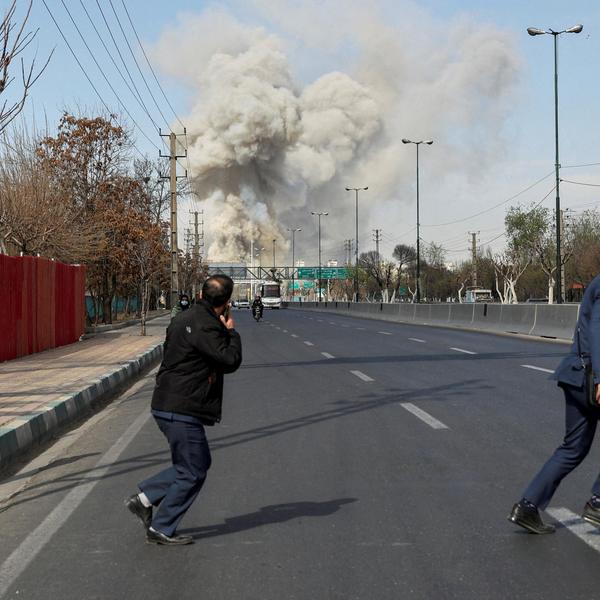As clamor over Saudi Arabia’s recent decision not to increase oil production as part of OPEC+ continues to rise, the Saudi regime has once again proved itself an unreliable ally, this time sentencing an U.S. citizen to 16 years in prison for tweeting. Saad Ibrahim Almadi, a 72-year-old project manager, was convicted and sentenced earlier this month, after having spent nearly a year in detention.
This is certainly not the first time that the kingdom has targeted Americans in a brutal crackdown that has ensnared regime critics, women’s rights activists, and business and political elite. Under MbS’s leadership, Saudi has also more readily engaged in the targeting of dissidents, defectors, and rights defenders abroad, including in the United States. These activities, often seen from adversaries like China, Russia, or Iran, are part and parcel of rising global authoritarianism, a trend that is disastrous both for U.S. strategic interests and any values of human rights or democratic ideals.
Indeed, Saudi Arabia has become one of the worst perpetrators of transnational repression, utilizing a variety of tools and techniques to silence those outside its borders. Abdullah al-Odah, Saudi scholar and research director at Democracy for the Arab World Now, has been the subject of a years-long surveillance, intimidation, and harassment campaign at the hands of the Saudi regime — all while living in supposed safety in the United States. Over the course of the last decade, al-Odah, who is the son of detained Saudi cleric Salman al-Odah, has had his phone tapped, was followed by Saudi officials while attending the University of Pittsburgh, and faces almost daily attacks online.
One such message, sent as demonstrations against police brutality swept the country, read: “You think that you are safe, but we will take advantage of the protesting and chaos in the U.S. and we will take care of you.”
Particularly chilling are acts of state hostage-taking, a common tool used by the Saudi government, where family members are kidnapped, detained, or tortured to pressure their relatives abroad.
In 2018, Canada-based Saudi exile Omar Abdulaziz learned that his mobile phone had been infected with Pegasus spyware; later, Saudi authorities detained two of Abdulaziz’s brothers and dozens of his friends to coerce his return to the kingdom. Since former top intelligence officer Saad Aljabri fled Saudi Arabia in 2017 and settled in Canada, the Saudi regime has also used spyware against him, kidnapped and imprisoned his two youngest children, and arrested dozens of his other family members, including his son-in-law Salem Al-Muzaini, who was rendered from Dubai and tortured in detention.
Other forms of transnational repression are more insidious. The Saudi government has used its deep pockets to exploit the American legal system, in one case risking exposure of American state secrets. In an unprecedented move, U.S. intelligence chief Avril Haines intervened as MbS, through a holding company, pursued Aljabri in Massachusetts District Court. The suit, Haines herself asserted in a declaration, risked causing “exceptional harm” to U.S. national security, as it would have exposed details of joint operations overseen by Aljabri.
After the murder and dismemberment of U.S. resident and Washington Post columnist Jamal Khashoggi — arguably the most brutal example of Saudi transnational repression and certainly the highest-profile — it seemed political winds were shifting against the Saudis. After making public an intelligence report that pointed to complicity at the highest levels of the Saudi government, a number of Saudi officials were sanctioned and a new “Khashoggi Ban” mechanism was put in place to target perpetrators of transnational repression. A series of bills were introduced that would require further certification that Saudi Arabia was not involved in the targeting of dissidents, like the Protection of Saudi Dissidents Act of 2021, which would otherwise limit arms sales to the country.
But today, four years later, these actions — and the more recent calls for an end to business as usual — feel too little and too ephemeral. None of the bills introduced in Congress have yet been passed into law, and the United States remains among the top arms suppliers to Saudi Arabia. And of course, mere months ago, President Biden traveled to Jeddah despite warnings that doing so would only embolden the Saudi regime. Since his trip, Almadi has received his egregious sentence, and another U.S. citizen, Carly Morris, has been placed on a travel ban.
Recent calls from Congress to reconsider ties with Saudi Arabia have focused almost exclusively on its failure to support the U.S. position on Russian aggression in Ukraine by resisting an increase in oil production. But a reconsideration of the relationship based only on Saudi’s actions with OPEC sends a chilling message that even the most brazen crimes will pass with impunity, as long as the oil keeps flowing.
U.S. officials are right in their desire to reconsider ties with this repressive regime but must not lose sight of the fact that any path forward must center human rights concerns as prerequisites for a future relationship. We must continue to insist on the reunification of U.S. families with loved ones detained or banned from travel in Saudi. Congress should pass legislation to pave ways for accountability for acts of transnational repression and to hold the administration accountable to U.S. law that prohibits arms sales to countries that engage in intimidation and harassment of individuals on U.S. soil.
It is long past time for Saudi Arabia to be seen for what it is: a brutal dictatorship seeking to assert itself in a world that is increasingly perilous for those who believe in the values of human rights and democracy.
















